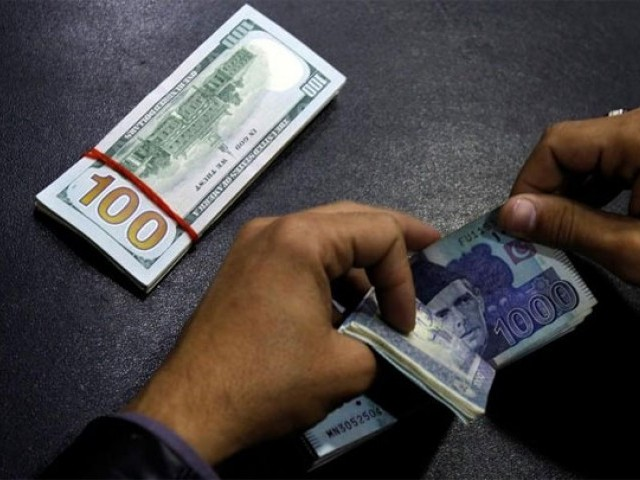Currency dealers offer to bring $1b a month
Ask finance minister to give rebate for attracting higher remittances

The government has allowed currency dealers to establish business ties with more foreign banks and global money transfer companies in order to attract higher remittances. PHOTO: Reuters
“Dealers contribute $200-300 million a month to the country’s reserves through commercial banks,” said Pakistan Forex Association President Malik Bostan while briefing Finance Minister Asad Umar.
“They (dealers) have the potential to bring up to $1 billion a month,” he told The Express Tribune after meeting the finance minister and Federal Investigation Agency (FIA) Director General Bashir Memon in Islamabad recently.
A delegation of currency dealers, headed by Bostan, asked the minister that the government should offer Rs2 per dollar in rebate to attract higher remittances from overseas Pakistanis. The incentive would help currency dealers to realise their true potential and contribute maximum dollars to the country’s foreign currency reserves, it said.
“The government is paying Rs6 per dollar to commercial banks for the job (of attracting remittances),” Bostan pointed out.
Pakistan receives around $20 billion in worker remittances a year. The receipts have remained a big source of stabilising the foreign currency reserves and helped finance imports and debt repayments.
The central bank estimated the number of Pakistanis working in overseas markets at 10.1 million in calendar year 2017.
Heavy imports and higher debt repayments have, however, continued to pile on the pressure on reserves.
The State Bank of Pakistan (SBP) reported on Thursday that its reserves fell to near five-year low of $7.28 billion as on December 28, 2018 despite Saudi Arabian assistance of $2 billion released in the previous two months under a package worth $6 billion.
The government has allowed currency dealers to establish business ties with more foreign banks and global money transfer companies in order to attract higher remittances.
“The government has allowed us to sign agreements with another five foreign banks and global money transfer firms like Xpress Money,” Bostan said. “At present, we receive remittances through five international companies.”
Commercial banks received remittances in association with 500 global banks and firms, he said.
There are around 67 members of the Pakistan Forex Association running branch offices at around 1,200 locations nationwide.
The SBP said the dealers had fetched around $1.2 billion in each of the three years (FY15, 16 and 17), which accounted for 6.3% of the total remittances of $19.35 billion in FY17.
Currency dealers in the open market had routed foreign currencies close to $8 billion - 2.5% of gross domestic product (GDP) - in 2017 whereas the demand for US dollars remained higher than other currencies at around $3 billion, according to the SBP.
Individuals have consumed around 63% of the total volume of the currencies exchanged in the year. Besides the US dollar, the demand for other major currencies including Saudi riyal, UAE dirham, UK pound sterling and European Union euro has also surged.
With the increased trade volume of currencies, which was close to $7 billion in calendar year 2016, the surrounding environment demands higher responsibilities at the end of exchange companies to avoid playing in the hands of people involved in money laundering and terrorist financing, the SBP said.
Crackdown on Hawala, Hundi
Besides, estimates suggest that the country receives another $5-7 billion in remittances through illegal channels called Hawala and Hundi.
Prime Minster Imran Khan said the other day mafias were involved in money laundering worth $10 billion a year. The current government - which came to power with the slogan of eradicating corruption, terror financing and money laundering - has launched a crackdown on Hawala and Hundi system operators.
Bostan told the FIA DG and finance minister that surprise and random visits by FIA officials to legal currency dealers were causing anxiety among them. He asked them that SBP officials should be made part of the teams working to tackle the Hawala and Hundi system.
Investigation by them should be video-recorded. Besides, the FIA should constitute a committee which may confirm whether the visiting team was genuine or not, he said.
“We have been looted by fraudulent groups many a time in the past as they introduced themselves as FIA men wearing police and Rangers’ uniforms,” Malik said.
Published in The Express Tribune, January 4th, 2019.
Like Business on Facebook, follow @TribuneBiz on Twitter to stay informed and join in the conversation.



















COMMENTS
Comments are moderated and generally will be posted if they are on-topic and not abusive.
For more information, please see our Comments FAQ